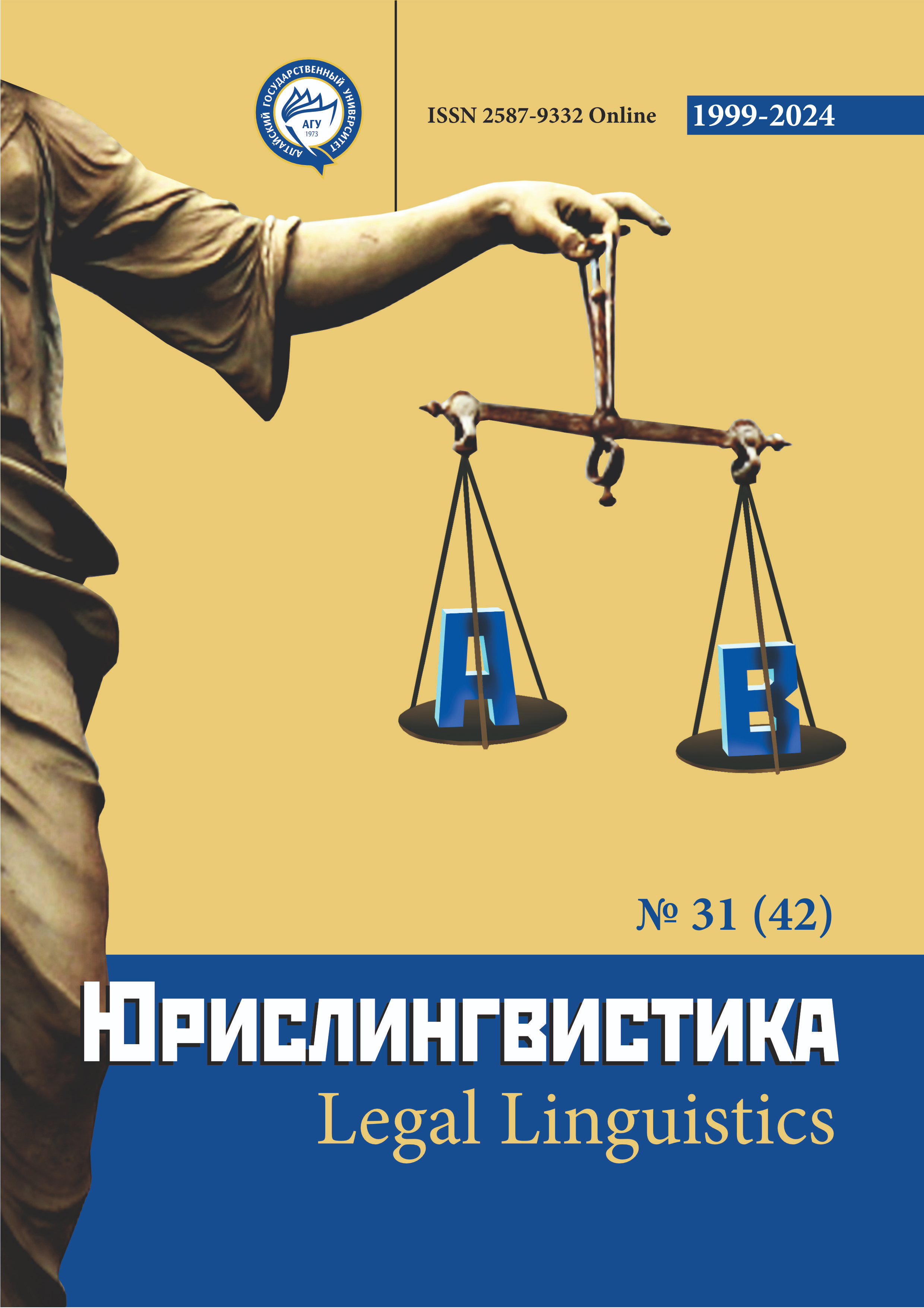Non-classical Theory of Categorization in Criminal Law
УДК 343.01, ББК 67.408
Abstract
The article discusses the study of the non-classical theory of categorization, which is a «prototype theory», and the possibility of its use in criminal law. In criminal law the category of circumstances mitigating punishment can serve as an example of a non-classical theory of categorization in the form of the application of prototype theory. The non-strict categorization criteria developed within the framework of non-classical theory cannot be applied to the primary basic criminal law categories, such as «crime» and «punishment», since the members of these categories can only be exhaustively established by criminal law of offences and penalties. However, this fact does not exclude the application of the non-classical theory of categorization in criminal law. The reason, and even the necessity, of using non-strict categorization in criminal law is grounded by the presence of such categories for which it is impossible to imagine a limited and clearly defined number of members with entirely the same general characteristics. The evaluative criminal law categories are most consistent with this approach. Criminal law evaluation categories are also language categories that must comply with the rules of the language to the greatest extent due to their lack of certainty and an unlimited number of category members. According to the author, principles developed within the framework of cognitive linguistics can be used in criminal law categorization, such as the principle of prototypicality, with certain limitations, the principle of taking into account the non-strictness of categories, the principle of gradation and the principle of multiplicity and diversity of the bases of categorization. In the context of the relationship with the non-classical theory of categorization, criminal law categories are scientific categories of criminal law that are based on non-strict categorization criteria that perform the methodological function of evaluative concepts and reflect the modern practice of applying criminal law norms.
Downloads
Metrics
References
Абишева К. М. Категоризация и ее основные принципы / Вопросы когнитивной лингвистики. - 2013. - № 2(35). - С. 21-30.
Алефиренко Н. Ф. Концепт - понятие - категория в свете современной лингвокогнитивистики / Научные ведомости Белгородского государственного университета. Серия: Гуманитарные науки. - 2010. - № 18(89). - С. 5-12.
Барабаш О. В. Юрислингвистика: истоки, проблемы, перспективы / Вестник Пензенского государственного университета. - 2014. - № 2(6). - С. 14-18.
Бершицкий Э. Е. Правовая определенность и оценочные категории: Краткий очерк на примере составов правонарушений в различных отраслях права. М., 2021.
Болдырев Н. Н. Роль интерпретирующей функции в формировании языковых категорий / Вестник Тамбовского университета. Серия: Гуманитарные науки. - 2011. - № 1(93). - С. 9-16.
Витгенштейн Л. Философские исследования / пер. с нем. Л. Добросельского. М., 2018.
Гизатуллин Д. Э. Общенаучные и философские аспекты термина «категория» в лингвистике / Филологические науки. Вопросы теории и практики. - 2017. - № 12-2(78). - С. 90-93.
Касимов Д. Р. Теоретико-прикладные аспекты оценочных понятий в уголовном праве: дисс. … канд. юрид. наук. Ижевск, 2022.
Качан М. И. Обстоятельства, смягчающие наказание, в российском уголовном праве: дисс. … канд. юрид. наук. Ростов-на-Дону, 2005.
Кострова М. Русский язык и российское законодательство / Уголовное право. - 2008. - № 1. - С. 108-112.
Кострова М. Б. Лингвистические аспекты уголовного законодательства России / Российский юридический журнал. - 2000. - № 4(28). - С. 90-97.
Кравченко С. Ю. Прототипический подход и процесс категоризации / Филологические науки. Вопросы теории и практики. - 2015. - № 3-1(45). - С. 117-119.
Куликов Е. А. Категории общего, особенного и единичного в уголовном праве: семантический анализ / Юридические исследования. - 2020. - № 12. - С. 1-17.
Лопашенко Н. А. Уголовно-правовая охрана экономики в России: реалии и тенденции последних лет / Ученые записки юридического факультета. - 2022. - № 1. - С. 49-55.
Михаль О. А. О критерии преступлений / Государство и право. - 2011. - № 10. - С. 35-42.
Назаренко Г. В. Категории концептуальности в уголовном праве / Известия Юго-Западного государственного университета. Серия: История и право. - 2016. - № 1(18). - С. 48-53.
Никольская А. В. Неклассическая концепция категоризации: философские основания и эвристические возможности: автореф. дисс. … канд. филос. наук. Москва, 2011.
Прохоров Ю. Е. В поисках концепта. 2-е изд. М., 2009.
Рыженков А. Я. Континуальность как характеристика метода правового регулирования / Современное право. - 2023. - № 4. - С. 38-43.
Ситникова А. И. Законодательная текстология уголовного права: автореф. дисс. … докт. юрид. наук. Москва, 2014.
Ушакова М. Г. Смягчающие наказание обстоятельства в уголовном праве России: автореф. дисс. … канд. юрид. наук. Москва, 2002.
Шафиков С. Г. Категории и концепты в лингвистике / Вопросы языкознания. - 2007. - № 2. - С. 3-17.
Copyright (c) 2024 Евгения Мелюханова

This work is licensed under a Creative Commons Attribution 4.0 International License.
The authors, which are published in this journal, agree to the following conditions:
1. Authors retain the copyright to the work and transfer to the journal the right of the first publication along with the work, at the same time licensing it under the terms of the Creative Commons Attribution License, which allows others to distribute this work with the obligatory indication of the authorship of this work and a link to the original publication in this journal .
2. The authors retain the right to enter into separate, additional contractual agreements for the non-exclusive distribution of the version of the work published by this journal (for example, to place it in the university depository or to publish it in a book), with reference to the original publication in this journal.
3. Authors are allowed to post their work on the Internet (for example, in a university repository or on their personal website) before and during the review process of this journal, as this may lead to a productive discussion, as well as more links to this published work (See The Effect of Open Access).











